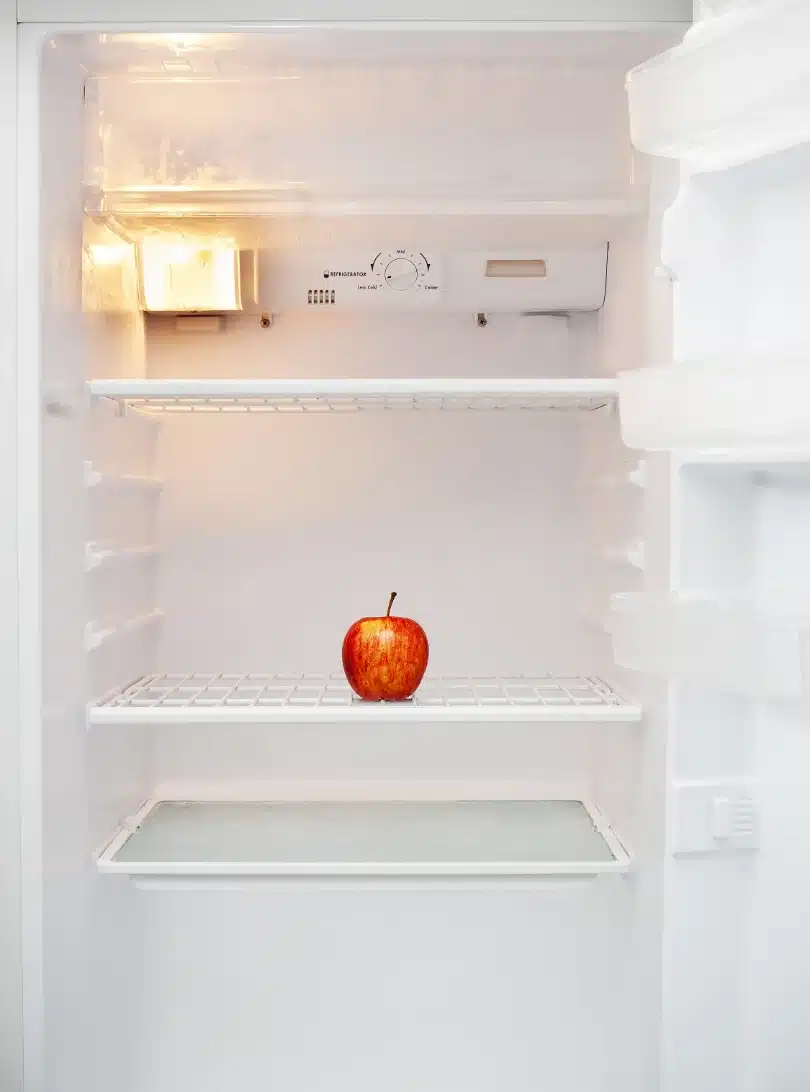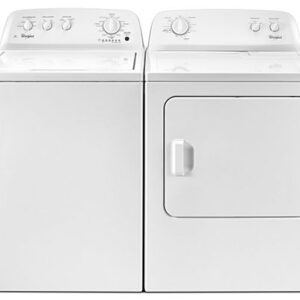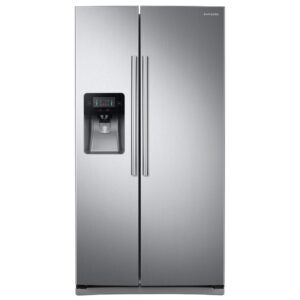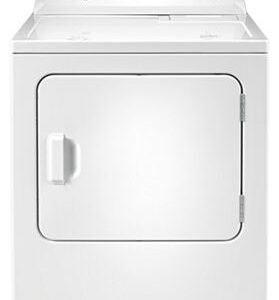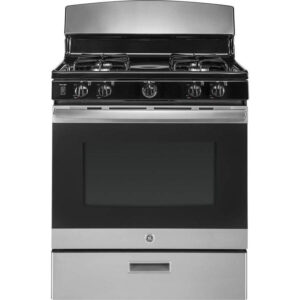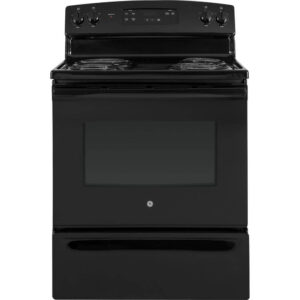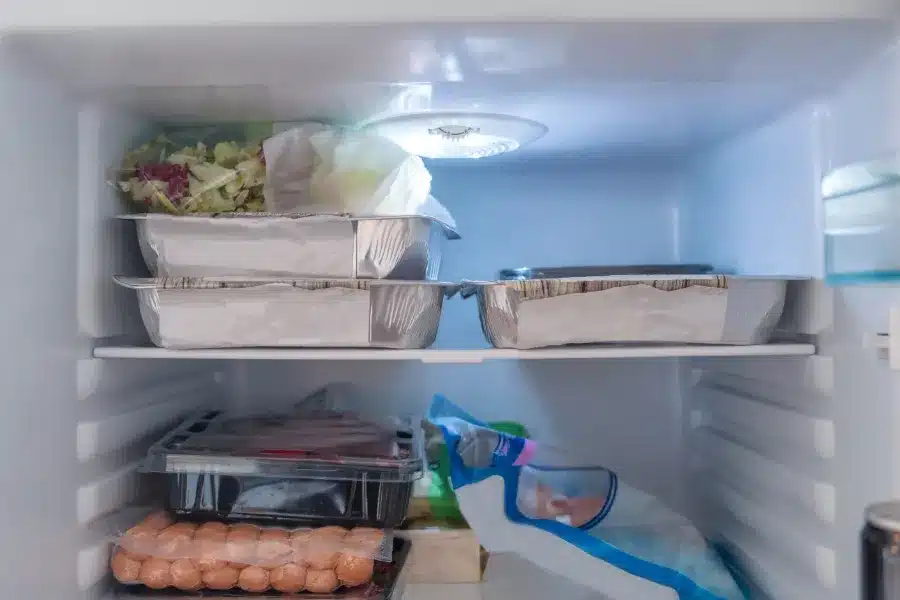Some states require landlords to fix a broken refrigerator within 48 hours.
Most states mandate landlords to maintain essential appliances like refrigerators, but many tenants still wait longer than they should. The “reasonable” repair time ranges from 48 hours to 14 days based on where you live.
Your rights as a tenant are significant. You have several options if your landlord doesn’t fix your refrigerator. Legal timeframes and tenant rights give you the power to take proper action. You can withhold rent or ask for compensation to cover spoiled food.
The situation needs a clear understanding of your options and rights if your rental property’s refrigerator stops working.
Understanding Your Legal Rights
State laws about refrigerator maintenance differ substantially. California landlords don’t have to provide refrigerators because they’re amenities, not necessities. Laws in Oregon and Washington state share this view – landlords must provide refrigerators only if the rental agreement says so.
Each state has its own rules about repairs. Washington state gives landlords 72 hours to fix broken refrigerators after they’re notified. New York state doesn’t set specific repair deadlines, but tenants can sue landlords who breach habitability warranties.
What counts as a “reasonable timeframe” for repairs depends on various factors. Urgent repairs should be done within 3-7 days, while less pressing issues can take up to 30 days. Repairs that affect living conditions need quick attention, especially in winter.
Landlords must provide refrigerators in specific situations. Your rental agreement creates a binding contract if it lists the refrigerator as an included appliance. The landlord becomes responsible for maintenance and repairs unless the lease states otherwise.
There’s a vital difference between amenities and necessities. Most jurisdictions call refrigerators “amenities”. All the same, tenants might pay less rent if landlords don’t provide amenities listed in the lease. Some states also view a broken refrigerator as a breach of habitability warranty.
Landlords who provide refrigerators are usually responsible for:
- Maintaining and operating the appliance
- Making major repairs or replacing when needed
- Keeping the unit working throughout the tenancy
Note that California law doesn’t allow tenants to subtract amenity repair costs from their rent. This could lead to a three-day notice to pay rent or face eviction.
Immediate Steps to Take
Quick action at the time your refrigerator breaks down protects your rights and saves your food.
Proper Documentation of the Issue
You retain control of the situation with good records. Start by taking clear photos of the broken refrigerator and any spoiled food. Create a detailed log that shows:
- Date and time the refrigerator stopped working
- Temperature readings (if possible)
- List of spoiled food items
- All communication attempts with your landlord
- Copies of written notices sent
Written Notice Requirements
Your landlord needs proper notification through specific procedures. We sent the repair request through certified mail with return receipt requested. This creates a legal record of your notification. Your written notice should clearly describe the refrigerator problems and ask for repairs within a reasonable timeframe.
Some states need a second written notice if you didn’t send the first one via certified mail. Keep copies of all correspondence and delivery confirmations in your files.
Protecting Your Perishable Foods
Time is crucial for food safety once your refrigerator stops working. A refrigerator keeps safe temperatures for only 4 hours after power loss or breakdown. You should take these protective steps:
Your refrigerator needs to stay at 40°F or below to keep food safe. You must throw away any perishable foods above 40°F for more than 4 hours. This applies to meat, poultry, fish, eggs, leftovers, and dairy products.
A cooler and frozen gel packs help preserve essential items. The refrigerator door should stay closed to maintain the coldest temperature. Document all food losses during extended repairs as you might get compensation through small claims court.
Note that unsafe food can make you sick even if it looks and smells fine. Don’t taste food to check if it’s safe – if you’re unsure, throw it away.
Legal Remedies Available
Tenants dealing with ongoing refrigerator problems have several legal options. These solutions protect your rights and help you get proper compensation.
Rent Withholding Options
New York law allows tenants to withhold rent until landlords complete repairs. Check if your state allows this action since states like Alabama don’t permit rent withholding. We focused on giving proper notice and allowed reasonable time to repair before taking this step.
Your rent withholding becomes valid when you meet these requirements:
- Document all repair requests
- Place withheld rent in an escrow account
- Comply with state-specific notice periods
- Make sure the issue qualifies under state law
Small Claims Court Process
Small claims court provides a faster way to resolve landlord-tenant disputes. You can file claims up to $10,000 in most jurisdictions. Note that you don’t need a lawyer to represent yourself in small claims court.
Here’s what you need to do:
- Gather evidence and documentation
- File the complaint with your local court
- Pay the required filing fee
- Serve notice to your landlord
- Attend the hearing with all supporting documents
Compensation for Food Loss
Beyond repair remedies, you might qualify for compensation if your food spoils. Most homeowners’ insurance policies cover food loss up to $500 when covered events cause the damage. Document your losses properly through:
- Photos of spoiled food
- Itemized list of lost items
- Receipts for expensive items
- Estimated total value
Power outages caused by utility companies might lead to reimbursement. To cite an instance, many insurance providers raise coverage limits to $2,500 or more for food spoilage with additional endorsements.
Tenants can seek reimbursement through small claims court from their landlords. Landlords don’t automatically have to replace spoiled food, but their negligence might make them liable for damages. Service contracts sometimes cover food loss specifically, and documented payouts reach $350.
Temporary Solutions
You have several temporary solutions to keep your food fresh while your landlord fixes the refrigerator food storage needs.
Refrigerator Rental Services
Rental services start at $59.99 per month and give you a quick fix. These companies handle installation, maintenance, and replacements if something goes wrong. Many local companies deliver the same day within city limits, so you won’t be without a fridge for long.
Rental companies usually include:
- Free delivery and setup
- Regular maintenance services
- Flexible rental periods
- A replacement unit right away if yours breaks down
Mini-Fridge Options
Mini-fridges work great as a stopgap solution and store your must-have items. The sizes range from 2.0 cubic feet for simple storage to 4.0 cubic feet when you need more space. The 2-door Deluxe models keep frozen items at 0°F in separate freezer sections.
Mini-fridges have some advantages over full-size units:
- You can set them up quickly
- They use less power
- They’re easy to move and don’t take much space
- They work right away with no repair wait time
Cost Recovery Methods
A cost tracking system helps you manage your expenses during this temporary fix. Make sure you keep records of:
- Rental fees and deposits
- Food you had to replace
- Transportation costs for other storage options
- Power bills
Refrigerated trailers work well for businesses and rental properties that need more space. These trailers come in three sizes: 5′, 8′, and 12′. These mobile units keep steady temperatures that protect your perishable items.
Emergency refrigeration services run 24/7. Most rental companies let you pay weekly or monthly. Before you pick a temporary solution, think about:
- How long you’ll need it
- How much storage space you need
- What you can afford
- Where you’ll put it
- Access to power outlets
Refrigerated trailers help with everything from emergencies to seasonal storage needs. These temporary fixes help you meet food safety standards until permanent repairs are done.
Working with Your Landlord
Your professional communication with your landlord sets the stage for quick refrigerator repairs. A well-laid-out approach to landlord-tenant interaction helps resolve maintenance problems faster.
Effective Communication Strategies
Professional communication starts with good documentation. We used email or property management platforms for all repair requests. This creates a paper trail of your exchanges and makes it easy to track responses.
Your communication should have:
- A clear description of what’s wrong with the refrigerator
- Photos or videos showing the problem
- How and when you can be reached
- Any past fixes or related problems
- How this affects your daily life
Stay calm when talking about repairs. Your first conversation should focus on solutions. Note that a professional tone gets faster results.
Following Up on Repair Requests
Keep detailed records of every repair interaction. Write down dates, times, and main points from each conversation. A quick follow-up message after your first request helps confirm what you discussed.
Stick to one way of communicating. Don’t jump between phone calls, texts, and emails. This keeps everything organized in one place.
Make a repair timeline with:
- When you first asked for repairs
- How long it took the landlord to respond
- When inspections are planned
- When repairs should be done
- Any changes or delays
Negotiating Timelines
Knowing reasonable repair timeframes gives you better negotiating power. State laws set different repair periods, usually 7 to 30 days. Set clear expectations but stay flexible within these legal limits.
Talk about exact dates instead of vague promises. Without doubt, this makes both sides accountable. Ask for written explanations and new completion dates if things get delayed.
Think over these points when discussing repair schedules:
- How serious the refrigerator problem is
- When repair services can come
- What temporary fixes are possible
- How it affects your food storage
- What repairs have been tried before
Sometimes landlords need extra time to get parts or book technicians. Ask for regular updates when this happens. Check your state’s repair laws if things take too long.
Put all agreed timelines in writing. A follow-up email should list deadlines and what you expect. This paperwork helps if you need to take action later.
Conclusion
You should know your rights and options when your refrigerator stops working. This knowledge helps you take the right steps. State laws set different repair timeframes that range from 48 hours to 14 days. Your location and lease agreement determine these requirements.
Documentation plays a vital role in this process. Photos, communication records, and a log of your landlord interactions will strengthen your case if you need legal action. Small claims court can help when other solutions don’t work.
Renting a temporary refrigerator gives you immediate relief during repairs. A&A Appliance Leasing delivers within 48 hours to major Texas cities. This will give a reliable food storage solution while you wait. Their flexible rental terms and no-credit-check policy make their services available to anyone with refrigerator problems.
Clear communication with your landlord and knowing your legal rights often lead to successful outcomes. These steps protect your interests and help handle refrigerator maintenance issues properly in your rental property.
FAQs
Q1. How quickly must a landlord repair or replace a broken refrigerator? The timeframe can vary by state, but typically landlords have 3-7 days for critical repairs and up to 30 days for non-critical repairs. Some states require action within 48-72 hours for essential appliances like refrigerators.
Q2. Is a non-functioning refrigerator considered an emergency repair? In many cases, yes. A broken refrigerator can make an apartment unlivable and cause serious issues like food spoilage. It’s often treated as an emergency repair that requires prompt attention from the landlord.
Q3. Can I withhold rent if my landlord doesn’t fix the refrigerator? Rent withholding may be an option in some states, but not all. Before withholding rent, check your local laws, provide proper notice to your landlord, and consider placing the withheld rent in an escrow account.
Q4. What should I do to protect my food if my refrigerator stops working? Immediately document the issue and notify your landlord. Keep the refrigerator door closed as much as possible, as it can maintain safe temperatures for about 4 hours. Consider using a cooler with ice for essential items, and be prepared to discard perishables exposed to unsafe temperatures for more than 4 hours.
Q5. Are there temporary solutions available while waiting for refrigerator repairs? Yes, there are several options. You can rent a refrigerator, with some companies offering same-day delivery. Mini-fridges can be a quick, space-efficient solution for storing essentials. Some landlords may provide temporary units. Keep all receipts for potential reimbursement.


